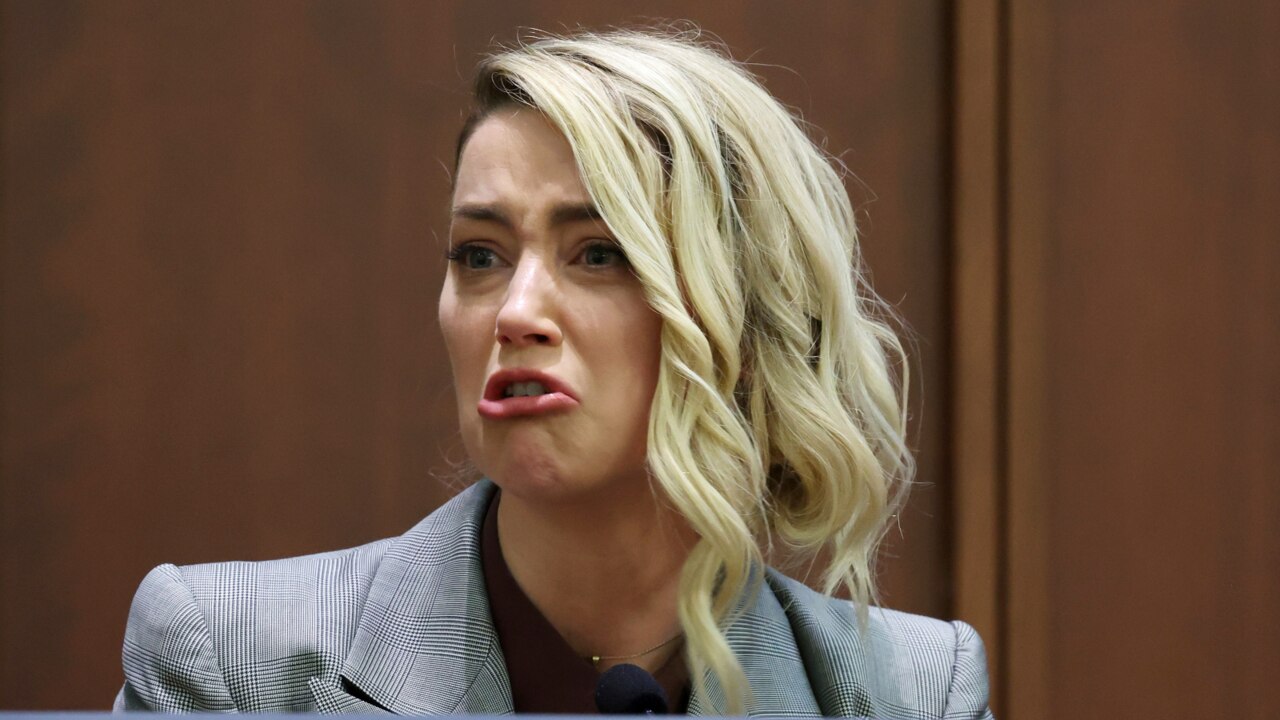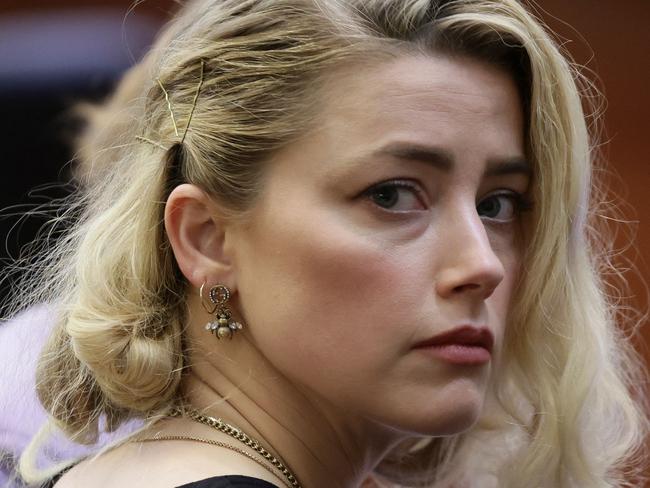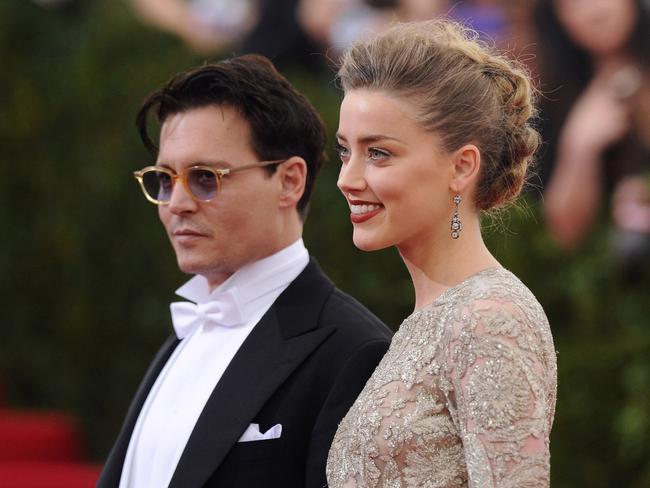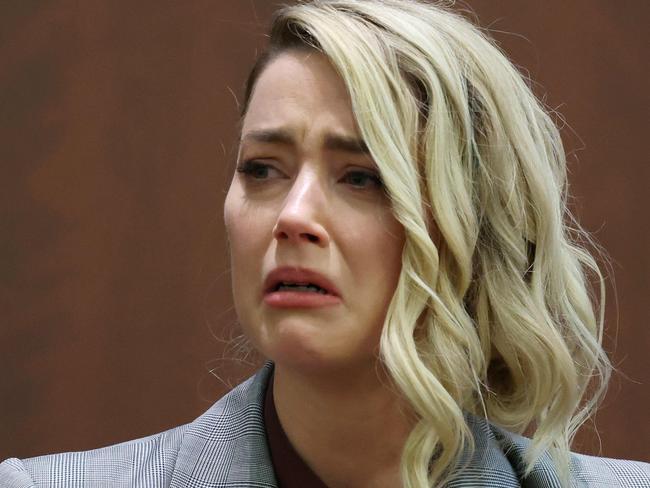Depp v Heard: A test case for our treatment of domestic violence survivors or a one-off?
Is the Amber Heard and Johnny Depp decision a test case for our treatment of domestic violence or a one-off? We examine both sides.

Susie O'Brien
Don't miss out on the headlines from Susie O'Brien. Followed categories will be added to My News.
There is much debate after the verdict in the Amber Heard and Johnny Depp defamation trial about the impact it will, or will not, have on other victims of domestic violence. Here we lay out the arguments for each side.
OurWatch chief executive officer Patty Kinnersly on the case for
Johnny Depp and Amber Heard won’t hear your commentary on their defamation trial – but the victim-survivors you know will.
The media, social media and public commentary around the trial has forensically dissected the harrowing details of violence, humiliation, control and abuse.
It’s been difficult to watch.
I’m not a lawyer or expert in legal proceedings, so I won’t comment on the specifics of this trial.
But after decades working to prevent violence against women and their children, this is what I want people to know about domestic, family and sexual violence.
It is gendered. It is about power and control. It’s also preventable.

Overwhelmingly, domestic violence involves men abusing and controlling women.
Women are far more likely to experience intimate partner violence than men. Approximately 95 per cent of all victims of violence, whether women or men, experience violence from a male perpetrator.
This is a fact. This is backed by Australian and international evidence.
In Australia:
On average, one woman a week is killed by a partner or former partner;
1 in 2 women has experienced sexual harassment in their lifetime;
1 in 3 women has experienced physical violence since the age of 15;
1 in 4 has experienced emotional abuse by a partner or former partner since the age of 15;
1 in 5 has experienced sexual violence since the age of 15.
Over the past six weeks I’ve been asked whether the recent coverage is a threat to the #MeToo movement.
Put simply – no.
Victim-blaming works hand-in-hand with violence to create a culture of silence.
This is precisely what #MeToo has sought to dismantle.
This is bigger than any individual trial or case and you too can send a message to the victim-survivors in your life.
You can challenge sexism and victim blaming and you can promote respect for women – in every part of your life: as a parent, sports coach, work colleague or social media contributor.
This is at the heart of preventing violence against women — taking a stand against inequality and disrespect.
Herald Sun writer Susie O’Brien on the case against
I believe Amber Heard.
I am sorry for the terrifying abuse she suffered at the hands of Johnny Depp.
Yet I don’t see her recent court loss as a test case for all domestic violence victims and the verdict as a loss for all women.
And it’s not the death of #MeToo, as some are claiming.
On Wednesday, a jury found Heard defamed Depp and acted with malice when she described herself as a victim of domestic abuse in a newspaper opinion piece.
This is despite the fact that Depp’s violence towards her is well documented. There is plentiful evidence that he kicked her to the ground, performed a cavity search inside her, put a cigarette out on her, hit her, punched her and inserted a bottle inside her.

She had every right to claim victim status.
When Depp recently sued a UK paper for defamation after he was dubbed a “wife beater”, the judge ruled it was “substantially true” and that Depp physically abused Heard on at least 12 occasions.
Given this, there is no doubt the verdict is a setback for Heard.
But is Heard right to claim that it also “sets back the clock to a time when a woman who spoke up and spoke out could be publicly shamed and humiliated?”
Surely not.
I don’t see Heard as a voice for all women; a representative of all sexual violence survivors.
Her own actions make this role too problematic.

The two had a violent, chaotic relationship marked by mutual antagonism, rages and bloodcurdling fights.
As Depp once said: “I’m scared to death we are a f---ing crime scene right now”.
Heard replied: “I can’t promise you I won’t get physical again. God I f---ing sometimes get so mad I lose it.”
Her case was complicated by her own aggressive, and at times physically violent, actions.
It doesn’t make her unworthy of also claiming she’s a victim, but it made it harder for her to win the $100m counterclaim she brought against Depp.
Family violence victims aren’t always perfect, and regardless of Heard’s own abuse, she did not deserve to lose the case.
Victims like Heard shouldn’t have to be “good” to be believed, and they should have the right to speak about their abuse in any forum they choose.
But I don’t see Heard as a hero for all women or a worthy representative of all family violence survivors.
She’s shouldn’t presume she’s speaking for me, and every other woman.
If you or someone you know is impacted by sexual assault, family or domestic violence, call 1800RESPECT on 1800 737 732 or visit www.1800RESPECT.org.au.




